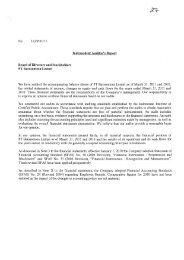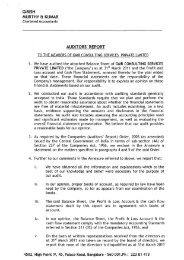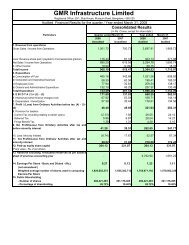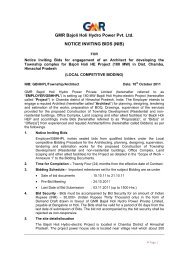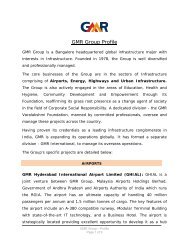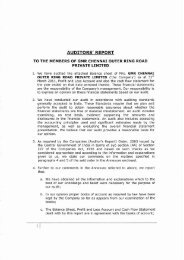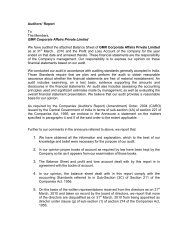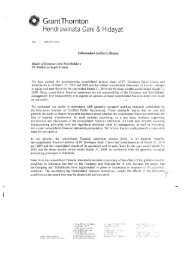LAYING THE FOUNDATION - GMR
LAYING THE FOUNDATION - GMR
LAYING THE FOUNDATION - GMR
Create successful ePaper yourself
Turn your PDF publications into a flip-book with our unique Google optimized e-Paper software.
EARLY CHILDHOOD EDUCATION<br />
Comments<br />
The following excert from the Draft National Curriculum<br />
Framework (2006), provides the context and framework<br />
for the <strong>GMR</strong> Varalakshmi Foundation in the area of preschool<br />
education.<br />
“The early childhood stage, until the age of 6-8<br />
years, is the most critical period when the foundations<br />
are laid for life-long development and<br />
the realization of full potential; research shows<br />
that there are ‘critical periods’ at this stage for<br />
full development of the brain’s potential. The<br />
formation of later attitudes and values as well as<br />
the desire to learn are also influenced at this<br />
stage, while lack of support or neglect can lead<br />
to negative consequences, sometimes irreversible.<br />
Early Childhood care and Education<br />
(ECCE) requires that young children be provided<br />
care, opportunities and experiences that lead to<br />
their all-round development — Physical, mental,<br />
social and emotional, and school readiness. A<br />
holistic and integrated perspective views the<br />
health and nutritional needs of children as integrally<br />
related with their psychosocial/educational<br />
development. The curriculum framework and<br />
pedagogy for ECCE must be based on this<br />
holistic perspective, taking into account the<br />
various domains of development, the characteristics<br />
of children at each sub-stage, and their<br />
learning needs in terms of experiences.<br />
It is well known that children have a natural<br />
desire to learn and make sense of the world<br />
around them. Learning in the early years must<br />
hence be directed by the child’s interests and<br />
priorities, and should be contextualized by her<br />
experiences rather than being structured formally.<br />
An enabling environment for children<br />
would be one that is rich in stimulation and<br />
experiences, that allows children to explore,<br />
experiment and freely express themselves, and<br />
one that is embedded in social relations that<br />
give them a sense of warmth, security and trust.<br />
Playing, music, rhyming, art and other activities<br />
1<br />
Laying the Foundation





